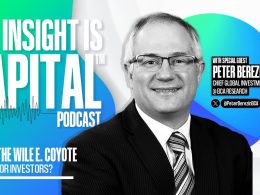Many market watchers are obsessed with when the Fed will begin tapering. However, those who expect the start of tapering to mean the end of easy money, and possibly of related market gains, are missing an important nuance. Russ explains.
by Russ Koesterich, Portfolio Manager, Blackrock
As the Federal Reserve (Fed)’s December policy meeting approaches, many market watchers are obsessed with when the Fed will announce that it’s starting to scale back, or “taper,” its asset purchase program.
However, those who expect the start of tapering to mean the end of easy money, and possibly of related market gains, are missing an important nuance. While the Fed may start to taper as early as next month, the central bank will most likely maintain easy money policy by other means.
As I write in my new weekly commentary, there are two reasons why monetary policy is likely to remain accommodative for an extended period of time.
- A fragile labor market. While the unemployment rate has dropped in recent years and initial unemployment claims are falling, other labor market metrics look less healthy. First, part of the drop in the unemployment rate can be largely attributed to falling labor force participation. Second, many of the new jobs being created are part time, leaving the underemployment rate high. Finally, despite some acceleration in job creation, wage growth remains well below trend.
- Low inflation. Given the still sluggish nature of the recovery, it should come as no surprise that inflation remains muted. Last week provided further evidence of the disinflationary trend, with U.S. consumer and producer price inflation decelerating to 1% and 0.3% respectively.
With growth uneven, the labor market fragile and inflation low, the Fed has significant latitude in how it adjusts monetary policy. In fact, even while tapering, it can maintain accommodative monetary policy via other methods, such as through forward guidance on the path of short-term rates and potentially cutting the interest paid to banks on their excess reserves.
So what does this mean for investors? I continue to expect that short-term rates will remain low for long. Low rates, in turn, should help maintain high corporate margins, supporting the long-term case for stocks.
Russ Koesterich, CFA, is the Chief Investment Strategist for BlackRock and iShares Chief Global Investment Strategist. He is a regular contributor to The Blog and you can find more of his posts here.
Source: BlackRock Weekly Commentary, Bloomberg
Copyright © Blackrock















